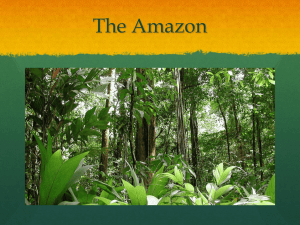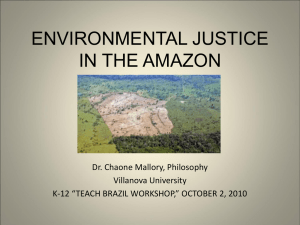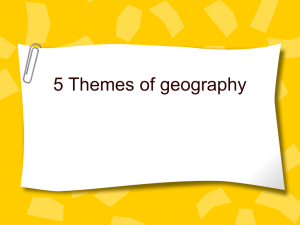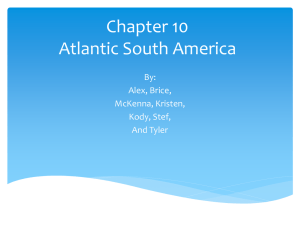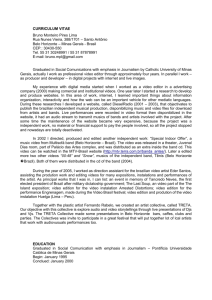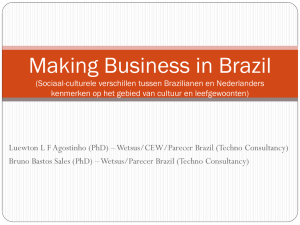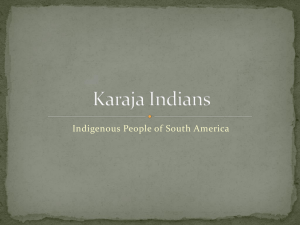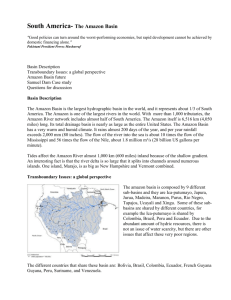Threats to the Amazon
advertisement
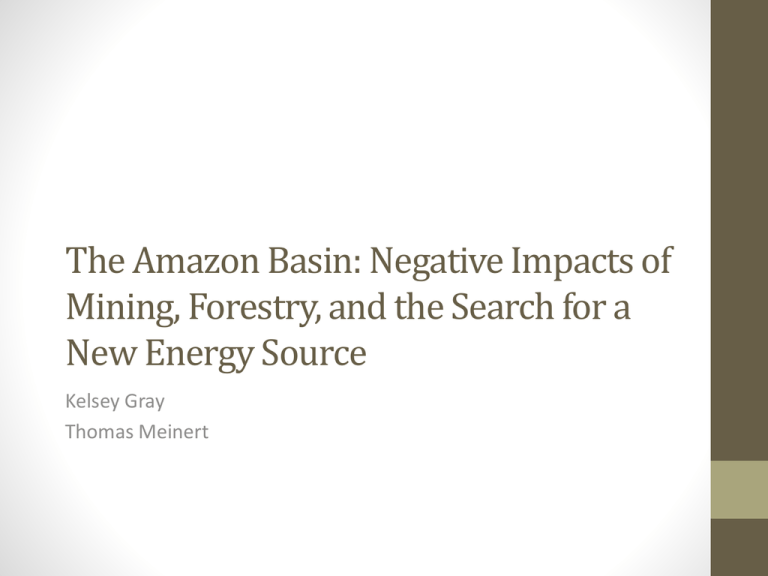
The Amazon Basin: Negative Impacts of Mining, Forestry, and the Search for a New Energy Source Kelsey Gray Thomas Meinert Gold Mining in the Amazon • Environmentally irresponsible • Damages riverbeds • Mercury is released • Cyanide is also released • Highly fatal to animals, plants and humans • Economically successful – at first • Conditions improved, but drastically changed when wars started to wage between indigenous people and others due to different ways of life Gold Mining in the Amazon • Indigenous People Suffer • Kayapo people particularly • Fighting the building of the Belo Monte Dam • Unknown how many have been murdered and uprooted from their homes • Ways of life are destroyed • River systems, food supply and medicinal tactics are poisoned and ruined. Logging in the Amazon • Environmentally irresponsible • Major deforestation, resulting in ruined land and endangered species • Causing droughts, which can cause forest fires and destroy even more trees Logging in the Amazon • IBAMA • Brazil’s version of the EPA. Not nearly enough workers for the amount of forest it is supposed to over. Impossible to get anything done • Corruption in officials • Government officials that are supposed to protect the land and issue permits are often corrupted and work for the illegal logging companies Brazil’s Plans for Future • In attempts to keep up with a booming population growth and also make economic gains Brazil is implementing a new growth program. • Brazil’s Accelerated Growth Program includes the building of: • Hydroelectric Dams • To provide power for the country’s growing population and infrastructure • Roads throughout Rainforest • In order to transport the natural resources and agricultural goods throughout the country. • Power Lines • In order to carry power from larger cities to more remote regions and create a new power grid. Belo Monte Dam • Xingu Rising (Xingu is the name of the river that the purposed dam will be on…it is a tributary of the Amazon River) • Watch this interesting video • Maybe will put the native culture in perspective • Brazil is planning on constructing over 30 hydroelectric dams in the next 10 years. The largest being the Belo Monte. • Projected cost of $11 billion • The Belo Monte is attempting to bring jobs to the area as well as power a large number of the country’s residents. • Would be the third largest dam in the world. • The government in Brazil is all for the opening and operation of the dam, while opponents are in stiff opposition to the construction (seriously…watch the video) Pros vs. Cons Pros • Lots of new jobs • A new energy source for Brazil • Increased energy availability • Economic progress for Brazil Cons • Thousands of people displaced • Increased greenhouse gasses • Ecosystem greatly harmed • HUGE REASON • Stiff opposition by the greater part of the world. Indigenous People of the Amazon • The numerous indigenous tribes in the Amazon that depend on the forest for everything ranging from food to medicine, will be greatly affected by the building of these dams and probably not in a positive way. Imagine someone coming to your city, flooding it…and then proceeding to keep flooding it every year. • Where will the natives live? Where will they find food when their habitat will be uprooted. Given that the native population only accounts for less than 1% of Brazil’s total population, it still is a shock that the government of Brazil is so lax on it’s policies and progression towards building of the Belo Monte. • Thousands of people will be displaced. Conclusion • As the once-isolated Amazon region opens up to more international trade and economic growth, there’s been an increase in environmental pressures as well as benefits and opportunities. It’s vital that planning of new ports, roads and hydroelectric plants respects the rainforest and the rights of local people. If the Belo Monte Project is completed it has the potential to provide thousands of jobs to the country of Brazil and also power upwards of 27 million homes. With that being said, thousands of native, indigenous people will lose their homes, their livelihoods, their way of living, and their deep spiritual link to the land they call “home.”

